Elderberry and Gut Health: The Key to a Thriving Digestive System
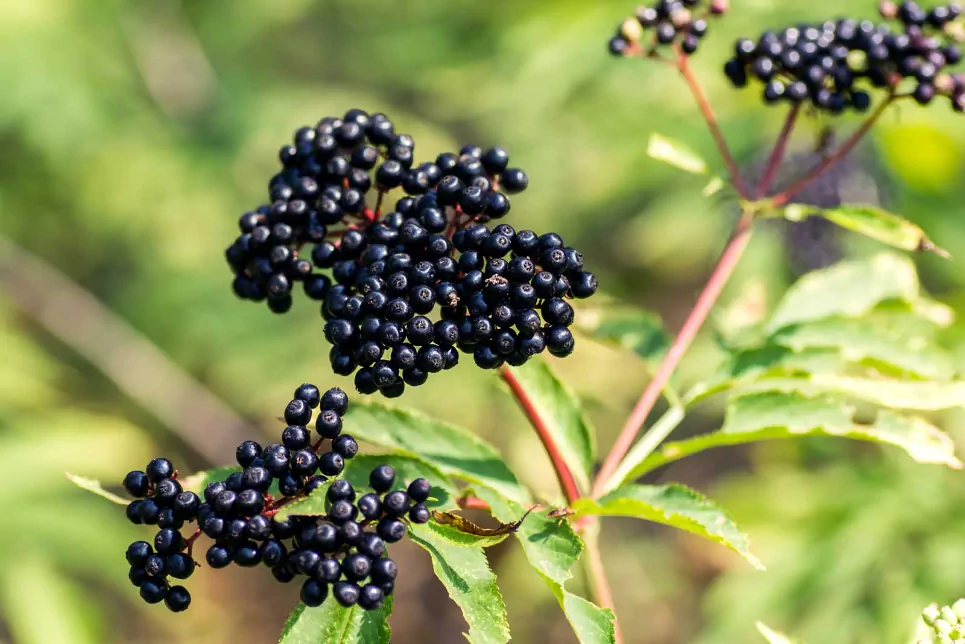
Key Takeaways
Elderberry's impact on gut health:- Gut Microbiota Support: Enhances digestive function and gut flora balance.
- Anti-inflammatory Properties: Aids in reducing gut inflammation.
- Nutrient-Rich Profile: Offers vitamins and antioxidants beneficial for digestion.
Article by Arnie Gitomer Sep 25, 2023
Introduction
When it comes to maintaining overall health, one cannot underestimate the importance of a well-functioning gut. A healthy gut contributes to digestion, nutrient absorption, and even immune function. In recent years, elderberry has gained attention for its potential benefits in supporting gut health. In this article, we will explore the connection between elderberry and gut health, the benefits it offers, its nutritional profile, and how it supports a thriving digestive system.
Elderberry and Gut Health: Exploring the Connection
The Importance of Gut Health
Before delving into the details of elderberry's impact on gut health, let's first understand why gut health is crucial. The gut, also known as the gastrointestinal tract, plays a vital role in digestion and nutrient absorption. Additionally, it houses trillions of bacteria, fungi, and other microorganisms collectively known as the gut microbiota.
A balanced gut microbiota is essential for maintaining a healthy gut. It aids in digestion, synthesizes vitamins, supports immune function, and even influences mental health. On the other hand, an imbalance in the gut microbiota can lead to various digestive issues, inflammation, and even chronic diseases.
Understanding Elderberry
Elderberry, scientifically known as Sambucus nigra, is a dark purple fruit that grows on the elder tree. It has a long history of medicinal use and is widely recognized for its immune-boosting properties. Elderberries are rich in vitamins, minerals, antioxidants, and phytochemicals, making them a valuable addition to a healthy diet.
While elderberry is commonly associated with immune support, emerging research suggests that it also holds potential benefits for gut health. The unique combination of nutrients and bioactive compounds found in elderberries may contribute to a thriving digestive system.
The Benefits of Elderberry for Gut Health
Boosting Digestive Function
Elderberry is known to have natural laxative properties, which can aid in relieving constipation and promoting regular bowel movements. The fiber content in elderberries adds bulk to the stool and helps facilitate smoother digestion. This benefit makes elderberry a valuable natural remedy for those struggling with occasional constipation.
Moreover, elderberry's high water content helps keep the digestive system hydrated, promoting optimal digestion and nutrient absorption. Hydration is essential for maintaining a healthy gut and preventing issues like bloating and indigestion.
Enhancing Gut Microbiota
The gut microbiota plays a significant role in maintaining gut health, and elderberry may positively impact its composition. Research suggests that elderberry extracts have antimicrobial properties, helping to combat harmful bacteria in the gut while promoting the growth of beneficial bacteria.
A diverse and balanced gut microbiota contributes to optimal digestive function and overall well-being. By supporting the growth of beneficial bacteria, elderberry may contribute to a healthier gut microbiota and improved digestive health.
Reducing Inflammation in the Gut
Inflammation in the gut can lead to various digestive disorders and even contribute to the development of chronic diseases. Elderberry contains natural anti-inflammatory compounds, such as anthocyanins and flavonoids, which may help reduce inflammation in the gut.
By alleviating gut inflammation, elderberry may provide relief for individuals with conditions such as irritable bowel syndrome (IBS), Crohn's disease, or ulcerative colitis. However, it's important to note that elderberry should not replace medical treatment for these conditions but can be used as a complementary approach.
Elderberry and Its Nutritional Profile
Vitamins and Minerals in Elderberries
Elderberries are a nutrient-dense fruit, packed with vitamins and minerals that support overall health. They are an excellent source of vitamin C, an immune-boosting nutrient known for its antioxidant properties. Vitamin C helps protect cells from oxidative stress and plays a vital role in collagen synthesis.
Furthermore, elderberries contain a range of B vitamins, including thiamin (B1), riboflavin (B2), niacin (B3), and vitamin B6. These vitamins are essential for energy production, maintaining healthy nervous system function, and supporting brain health.
Antioxidants and Phytochemicals
Elderberries are rich in antioxidants, which help protect the body against harmful free radicals and oxidative stress. The deep purple color of elderberries is a visual indicator of their high anthocyanin content. Anthocyanins are potent antioxidants that have been associated with various health benefits, including reduced inflammation and improved heart health.
Additionally, elderberries contain other phytochemicals, such as quercetin and rutin, which have been linked to anti-inflammatory and antioxidant properties. These compounds contribute to the overall health-promoting effects of elderberries.
How Elderberry Supports a Healthy Gut
Strengthening the Gut Barrier
The gut barrier, also known as the intestinal barrier, plays a critical role in preventing harmful substances from entering the bloodstream. When the gut barrier is compromised, toxins and bacteria can leak into the bloodstream, triggering inflammation and potential health issues.
Research suggests that elderberry extracts may help strengthen the gut barrier by reducing permeability. A study published in the Journal of Agricultural and Food Chemistry found that elderberry extract inhibited the production of inflammatory molecules associated with increased intestinal permeability. By preserving the integrity of the gut barrier, elderberry may contribute to improved gut health.
Balancing Gut Microflora
A balanced gut microbiota is essential for optimal digestive function and overall health. Elderberry's antimicrobial properties may help rebalance the gut microbiota by inhibiting the growth of harmful bacteria while supporting the growth of beneficial bacteria.
Additionally, elderberry's prebiotic-like properties promote the growth of beneficial bacteria in the gut. Prebiotics are non-digestible fibers that serve as a food source for probiotics, the beneficial bacteria in the gut. By acting as a prebiotic, elderberry can enhance the growth and activity of probiotics, contributing to a healthier gut microbiota.
Alleviating Digestive Issues
Elderberry's anti-inflammatory properties and impact on gut microbiota balance may alleviate various digestive issues. Conditions such as bloating, indigestion, and occasional constipation may benefit from incorporating elderberry into the diet.
Moreover, elderberry's ability to reduce gut inflammation can provide relief for individuals with inflammatory bowel diseases (IBD) like Crohn's disease and ulcerative colitis. While elderberry cannot replace medical treatment, it may serve as a complementary approach to support digestive health.
Elderberry and Immune Function
The Gut-Immune System Connection
The gut and the immune system are closely interconnected. A significant portion of the immune system resides in the gut, making it a crucial player in immune function. The gut microbiota plays a vital role in training and regulating the immune system, influencing its response to pathogens and maintaining a balanced immune response.
Elderberry's Impact on Immune Health
Elderberry is renowned for its immune-boosting properties. It has been traditionally used to prevent and treat respiratory infections, such as the common cold and flu. While the exact mechanisms are not fully understood, elderberry's high antioxidant content and its ability to modulate the immune response are believed to contribute to its immune-boosting effects.
By supporting immune function, elderberry indirectly contributes to gut health. A robust immune system helps protect the gut from harmful pathogens and supports the gut's overall function.
Research Studies on Elderberry and Gut Health
Study 1: The Effects of Elderberry Extract on Gut Inflammation
A study published in the Journal of Agricultural and Food Chemistry investigated the effects of elderberry extract on gut inflammation in mice with colitis. The results showed that elderberry extract reduced the production of inflammatory molecules and decreased intestinal permeability. These findings suggest that elderberry may have potential anti-inflammatory effects in the gut.
Study 2: Elderberry's Influence on Gut Microbiota Diversity
In a study published in the European Journal of Nutrition, researchers explored the impact of elderberry on gut microbiota diversity in healthy adults. The participants consumed elderberry extract daily for eight weeks. The results indicated a significant increase in the diversity of beneficial bacteria in the gut, suggesting that elderberry can positively influence gut microbiota composition.
Study 3: Elderberry's Role in Intestinal Permeability
A study published in the Journal of Functional Foods examined the effects of elderberry extract on intestinal permeability in human cells. The researchers found that elderberry extract reduced intestinal permeability by modulating the expression of genes involved in gut barrier function. These findings provide further evidence of elderberry's potential to support a healthy gut barrier.
How to Incorporate Elderberry into Your Diet
Elderberry Supplements
Elderberry supplements are available in various forms, including capsules, powders, and liquid extracts. When choosing a supplement, opt for high-quality products from reputable brands. Look for standardized extracts to ensure consistent potency and follow the recommended dosage instructions.
It's essential to consult with a healthcare professional before starting any new supplements, especially if you have underlying health conditions or are taking medications.
Elderberry Recipes
Incorporating elderberry into your diet can be both delicious and nutritious. Here are a few ideas for incorporating elderberry into your meals and snacks:
- Elderberry Smoothie: Blend elderberries, a banana, spinach, almond milk, and a dollop of yogurt for a refreshing and immune-boosting smoothie.
- Elderberry Jam: Make a homemade elderberry jam by simmering elderberries, lemon juice, and a natural sweetener of your choice. Enjoy it on toast or as a topping for yogurt.
- Elderberry Chia Pudding: Combine chia seeds, almond milk, elderberry syrup, and a touch of honey. Let it sit overnight, and you'll have a nutrient-packed chia pudding ready for breakfast.
- Remember to use elderberries in moderation and balance them with a variety of other fruits, vegetables, whole grains, and lean proteins to maintain a well-rounded and balanced diet.
FAQs about Elderberry and Gut Health
FAQ 1: Can Elderberry Help with Constipation?
Yes, elderberry's natural laxative properties can help relieve constipation. The fiber content in elderberries adds bulk to the stool and promotes regular bowel movements. Additionally, elderberry's high water content helps keep the digestive system hydrated, facilitating smoother digestion.
FAQ 2: Is Elderberry Safe for Individuals with Gut Disorders?
While elderberry is generally safe for most individuals, it's advisable for those with gut disorders to consult with a healthcare professional before using elderberry supplements. This precaution is especially important for individuals with conditions such as IBS, Crohn's disease, or ulcerative colitis, as elderberry may interact with certain medications or exacerbate symptoms in some cases.
FAQ 3: How Much Elderberry Should I Consume for Gut Health Benefits?
The optimal dosage of elderberry may vary depending on factors such as age, overall health, and the form of elderberry consumed. It's best to follow the dosage instructions provided on the supplement packaging or consult with a healthcare professional for personalized advice.
FAQ 4: Can Elderberry Aggravate Acid Reflux?
Elderberry is generally well-tolerated, but some individuals may experience acid reflux or heartburn as a side effect. If you have a history of acid reflux or are prone to digestive issues, it's advisable to start with a lower dose of elderberry and monitor your body's response. If symptoms worsen or persist, discontinue use and consult with a healthcare professional.
FAQ 5: Is Elderberry Effective for Leaky Gut Syndrome?
While elderberry may contribute to gut health by strengthening the gut barrier, there is limited scientific evidence specifically addressing its effectiveness for leaky gut syndrome. It's important to approach leaky gut syndrome with a comprehensive treatment plan under the guidance of a healthcare professional.
FAQ 6: Can Elderberry Interact with Gut Medications?
Elderberry may interact with certain medications, including those prescribed for gut-related conditions. It's crucial to consult with a healthcare professional before using elderberry supplements, especially if you are taking any medications or have underlying health conditions.
Conclusion
Incorporating elderberry into your diet can be a valuable strategy for supporting gut health. The combination of elderberry's nutritional profile, antioxidant content, and its impact on gut microbiota and gut inflammation make it a promising ally for maintaining a thriving digestive system. However, it's important to remember that elderberry supplements should not replace medical treatment for specific gut-related conditions. Consult with a healthcare professional before adding elderberry to your routine to ensure it aligns with your individual needs.
By prioritizing gut health and considering natural remedies like elderberry, you can take proactive steps toward enhancing your overall well-being. Embrace the potential benefits of elderberry and unlock the secrets to a healthier gut.
 |
Read more about Arnie Gitomer |
Product Search Results
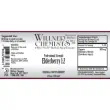
|
Elderberry 1:2 | Willner Phyto Tech | $10.29 | 57026 |
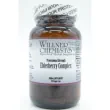
|
Elderberry Complex | Willner Phyto Tech | $13.72 | 67462 |
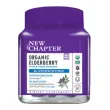
|
Elderberry Gummies | New Chapter | $19.81 | 69925 |
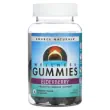
|
Elderberry Gummies Wellness | Source Naturals | $13.99 | 70413 |

|
Elderberry liq Conc 500 mg | Now Foods | $14.99 | 59102 |
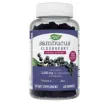
|
Sambucus Gummies Elderberry | Natures Way Vitamin | $16.79 | 64773 |
